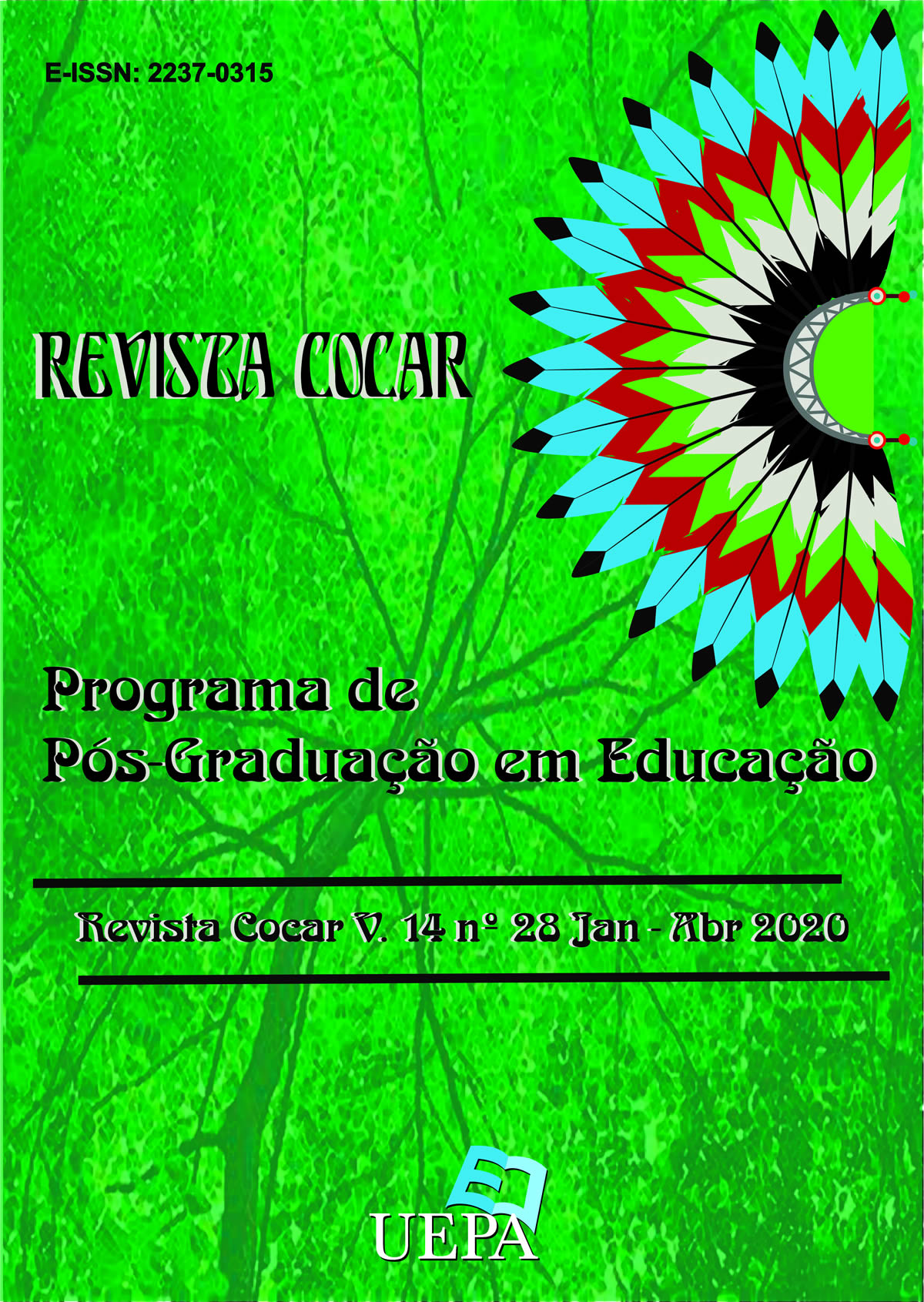Festa da Moça na Aldeia São Pedro: Contribuições para educação intercultural indígena, diálogo e reflexão acerca da diversidade cultural
Resumo
The moça festival in village São Pedro: contributions for indian intercultural education, dialogue and reflection on cultural diversity
Resumo
O presente relato apresenta uma iniciativa de documentação da Cultura Tembé, em especial a primeira Festa da Moça realizada no ano de 2018, no período de 16 a 22 de abril na Aldeia São Pedro, no município de Santa Luzia/Pará, organizado pelo cacique Kamiran Tembé e pelo professor Fabrício Rodrigues. A trajetória metodológica foi fundamentada na pesquisa de campo como enfoque na abordagem qualitativa. A coleta de dados foi por meio da observação participante, em decorrência de ser um meio de participar diretamente da vida social dos sujeitos no seu cenário sociocultural relacionado aos preparativos da Festa da Moça. O objetivo foi problematizar a partir do ritual da Festa da Moça a diversidade sociocultural e cosmológica relacionada a uma contextualização pedagógica interdisciplinar teórica e prática de valorização dos seus costumes culturais e tradições. Durante a realização da pesquisa, diferentes instrumentos de registros de observações e informações foram utilizados, como as conversas informais com o pajé, as lideranças indígenas e os mais velhos por meio de roteiros de entrevistas, registros em áudio e câmera fotográfica. Conclui-se que a transmissão (documental) da memória indígena da Festa da Moça passou a ser valorizada nas escolas de Educação Infantil e de Ensino Fundamental nas aldeias do Povo Indígena do Alto Rio Guamá-TIARG e tal atividade possibilitará a construção de uma educação diferenciada com fundamentos em um saber prático e correspondente aos seus costumes culturais e tradições.
Palavras-chave: Ritual e Saberes Indígenas, Educação Diferenciada, Festa da Moça.
Abstract
This work reports an initiative to document the Tembé Culture, especially the first Moça Festival, which took place from 16 to 22 of April of 2018 at the São Pedro Village, in the city of Santa Luzia in the state of Pará, and was organized by the cacique Kamiran Tembé and Professor Fabrício Rodrigues. To accomplish this work, the method used was field research focusing in qualitative dimensions. The data collection was performed by observing the participants, because it was a way to actively engage in the social life of the subjects in their own social cultural environment regarding the Moça Festival. Using the festival as a base, the objective was to discuss the social-cultural and cosmological diversity related to an interdisciplinary pedagogical contextualization, both theoretical and practical, of valuing their cultural customs and traditions. During the research, different tools were used to record the observations and information, like interviews, audio recordings and photographic cameras. It was possible to see that the (documented) transference of the indigenous memory of the Moça Festival started to be more valued in the schools of Preschool and Primary education in the villages of the Indian People of the Guamá River Spring (TIAG), and this activity will enable the construction of a differentiated education, based on practical knowledge, that corresponds to its cultural customs and traditions.
Keywords: Indian Knowledge and Rituals; Differentiated Education; Moça Festival.
Downloads
Downloads
Publicado
Métricas
Visualizações do artigo: 469 PDF downloads: 458
Como Citar
Edição
Seção
Licença
O envio de qualquer colaboração implica automaticamente a cessão integral dos direitos autorais à Revista Cocar. A Revista não se obriga a devolver os originais das colaborações enviadas.Deprecated: json_decode(): Passing null to parameter #1 ($json) of type string is deprecated in /var/www/html/periodicos/plugins/generic/citations/CitationsPlugin.inc.php on line 49























